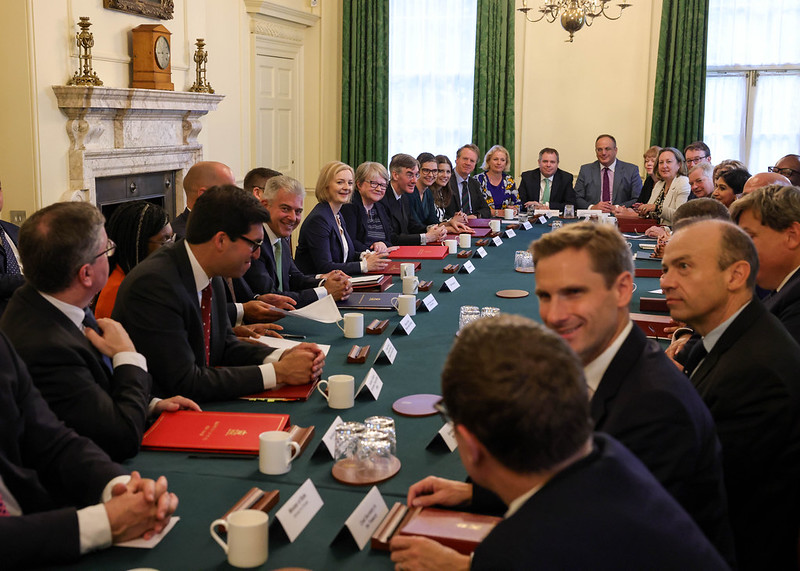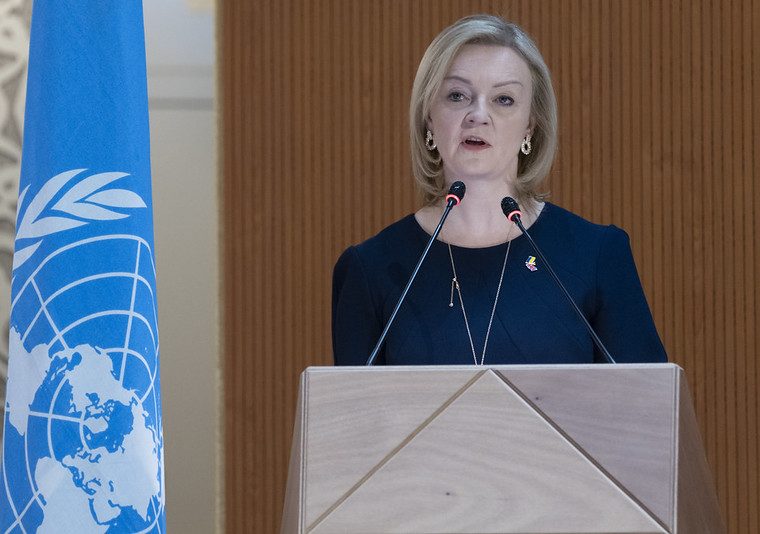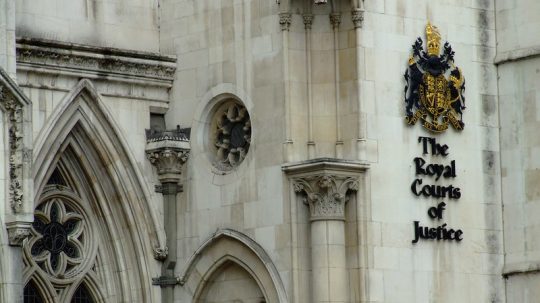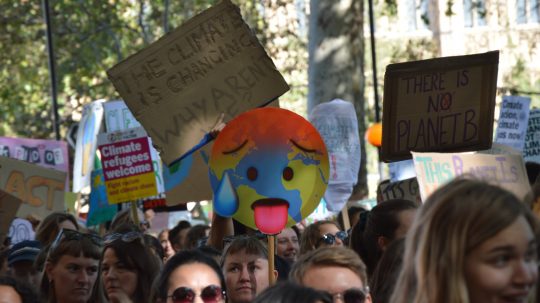Having dived into prime minister Liz Truss’s human rights record, we take a look at the records of the ministers she has appointed to her cabinet – many of whom have come under fire for representing issues they have actively tried to restrict, including the environment, migration, access to healthcare, welfare benefits and public services.
Following Truss’s appointment of her government, several new ministers have come under fire for taking jobs in conflict with their voting history, promises and passed legislation. The new cabinet is dominated by ministers who have voted against issues they are now responsible for.
The oil investor in charge of the ‘unlawful’ net zero strategy
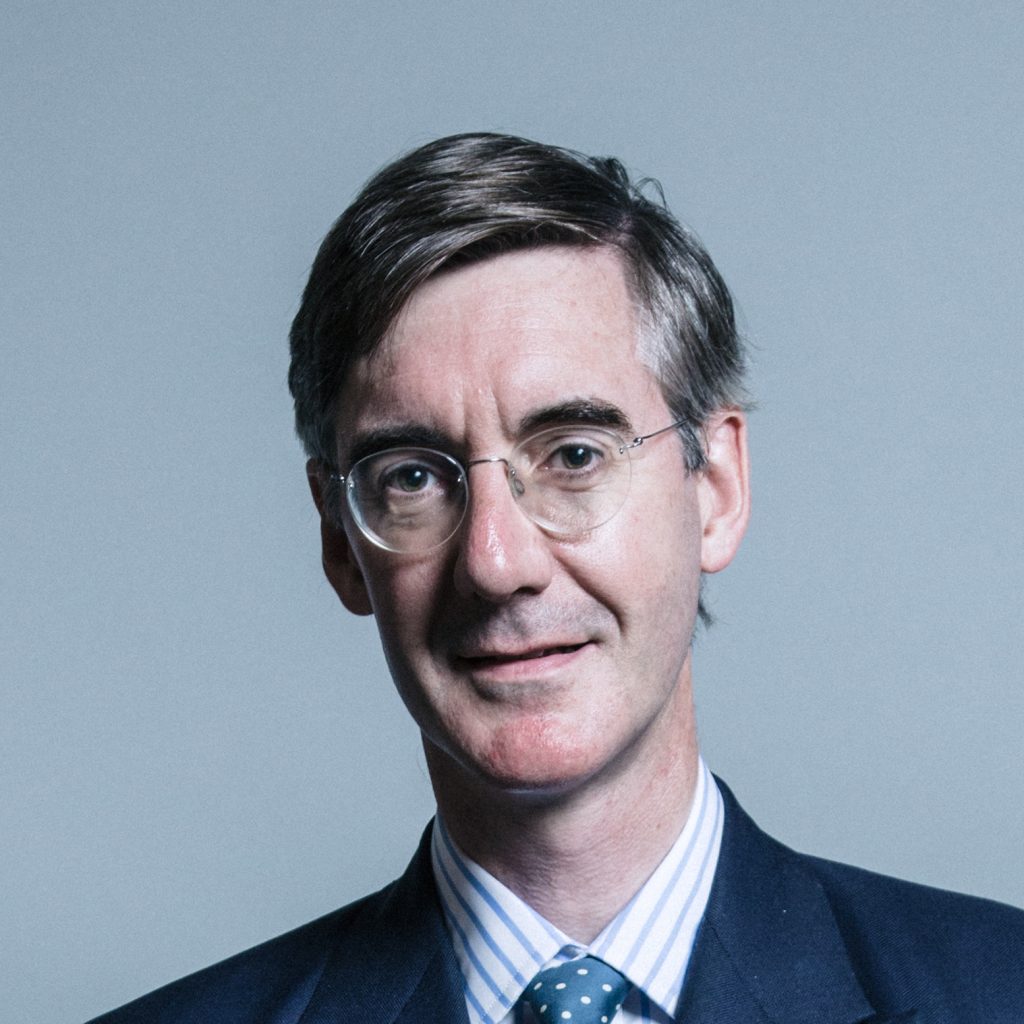
Credit: Jacob Rees-Mogg/UK Parliament.
The secretary of state for business, energy and industrial strategy, Jacob Rees-Mogg, has a track record of voting against support to slow climate change, and is reported as having vested interest in fossil fuels.
Mogg, who has previously supported ramping up fossil fuel use and fracking in the North Sea, is now in charge of cutting UK carbon emissions. Mogg’s key responsibility will be meeting the UK’s target of net zero greenhouse gas emissions by 2050, which is a legally binding commitment.
The newly appointed secretary of state has notoriously voted against measures to prevent climate change, including wind farms.
Mogg is reportedly a climate change denier and has investments in oil and coal mining through Somerset Capital Management, the fund management firm he co-founded and still benefits from financially.
He has been criticised for pushing former prime minister David Cameron’s green cap, which has reportedly added £150 to every energy bill.
Mogg’s controversial contribution to climate extends to votes for HS2, the under-construction high-speed rail link between the northwest and the southeast of England, which has caused major concerns among environmental campaigners as well as residents throughout the Midlands.
A ban on boats crossing the channel and detaining more migrants

Credit: Suella Braverman/UK Parliament.
As home secretary, Suella Braverman’s responsibilities will include overseeing UK borders, policing and counter-terrorism. Braverman has reportedly attacked trans rights, suggesting that the government could attempt to stop Scotland from reforming its gender recognition laws because it would create a “two-tier system” in the UK. She has come under significant fire for her views both on equality and the rights of the individual.
In her inaugural address to Home Office staff, Braverman made headlines with her pledge to ban all small boats from crossing the Channel. It’s thought she will resume talks with the French government to stave towards her goal of reducing the number of refugees crossing the channel to zero.
Braverman is due to set an even harder stance on migration than her predecessor, Priti Patel, who had signed a migration partnership with the Rwandan government in a move to offshore refugees and asylum seekers.
The European Court of Human Rights (ECHR) ruled that individuals should not be removed until domestic courts have decided whether or not the policy is lawful. Earlier this year, the government admitted that immigration plans, including the Rwanda migration partnership, have not provided safe government-backed routes for asylum seekers.
The ECHR remains a last resort for people to defend their rights and so plays a vital role for us all. However, it’s a safety net that’s under threat, as Braverman advocated withdrawing from the European Convention on Human Rights during her leadership campaign. However, it is unclear if she will push for withdrawal as home secretary. She is expected to have a significant input into plans to replace the Human Rights Act with a Bill of Rights, which will make it easier to deport failed asylum seekers and foreign criminals who have served 12 months or more, including for non-violent crimes.
Braverman is also committed to continue former prime minister Boris Johnson’s pledge to put 20,000 new police officers on the streets. Under Johnson’s commitment, 10,000 should be in place by 2023.
Concern about access to healthcare
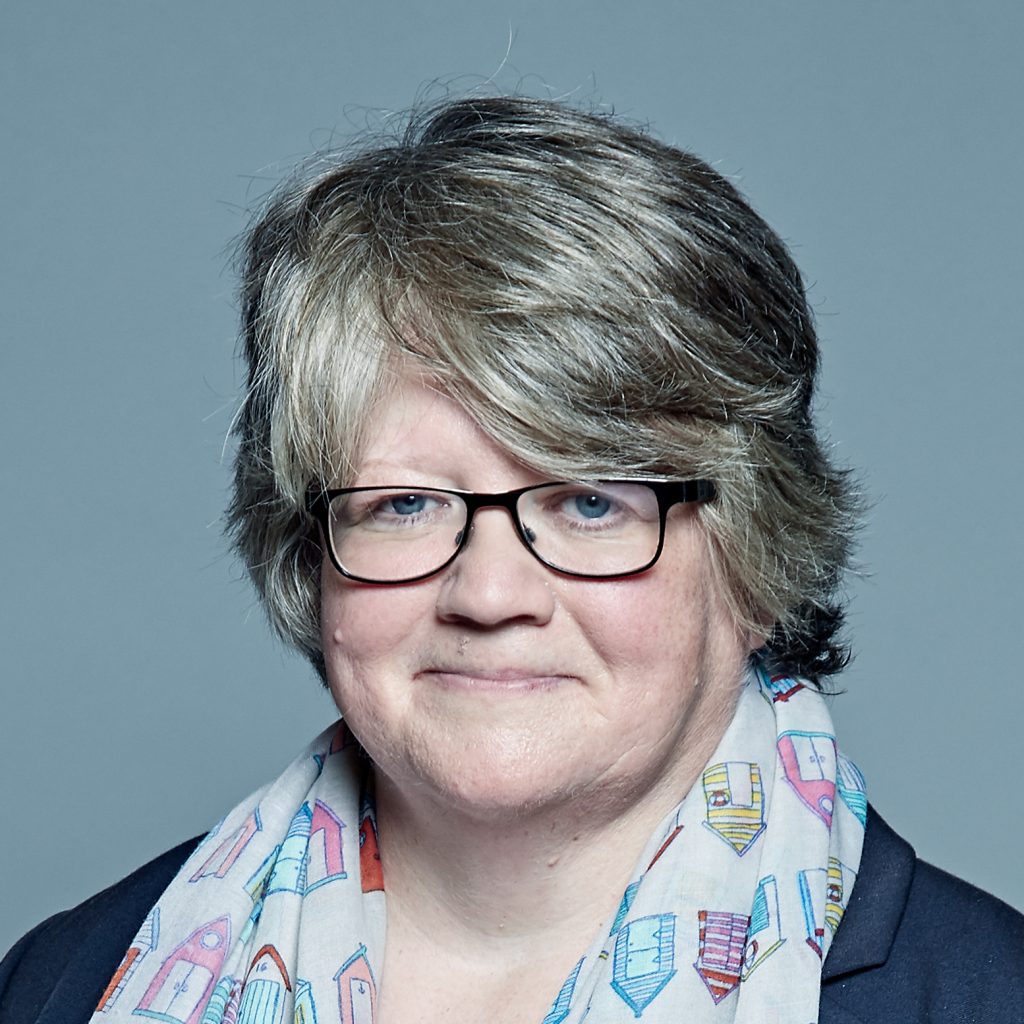
Credit: Thérèse Coffey/UK Parliament.
Deputy prime minister and secretary of state for health and social care Thérèse Coffey is thought to be in favour of the privatisation of the NHS and has consistently voted for reforming the NHS, so that GPs would buy services on behalf of their patients.
There is concern that lengthy NHS waiting lists could become an incentive for Coffey to push the privatisation of the service. Concerns have been increasing since the UK’s national lockdown, when the government funded private healthcare firms in a bid to ‘relieve pressure’ on NHS services. However, during that time private companies profited by millions of pounds for services that reportedly were not fully used, while the NHS paid for it.
Coffey has an alarming history of voting against access to women’s health services, predominantly abortion. In 2010, Coffey introduced a parliamentary motion calling for women seeking abortions to be subject to “mental health assessments”. In 2018, she voted against extending abortion rights to women in Northern Ireland.
The right to health is protected under Article 12 of The International Covenant on Economic, Social and Cultural Rights, which the UK is a signatory of, meaning that it should abide by protections under the convention.
Earlier this year, Coffey voted to remove access to at-home abortion pills for women in England and Wales and to criminalise those who end their own pregnancies without the approval of two doctors. It goes against advice from leading medical bodies, charities and civil liberty groups. Coffey has also historically voted against allowing terminally ill people to be given assistance to end their life.
Track records of voting against equality and human rights

Credit: James Cleverly/UK Parliament.
Secretary of state for foreign, commonwealth and development affairs James Cleverly has generally voted against laws to promote equality and human rights and almost always voted for stronger enforcement of immigration rules.
Much like his colleague Braverman, Cleverly has consistently voted for use of UK military forces in overseas operations. Despite his backing of the UK’s involvement in overseas conflict, he voted against investigations into the Iraq war, as did fellow politicians mentioned in this article. He is documented as consistently voting for the mass retention of information about communications, which has been described as a breach of rights to privacy.
Cleverly has consistently voted for a referendum on the UK’s membership of the EU and almost always voted against the UK’s membership. However, that isn’t Cleverly’s most controversial stance on the EU. The minister has almost always voted against the right of EU nationals to continue living in the UK.
Cost of living: banks protected while benefits suffer
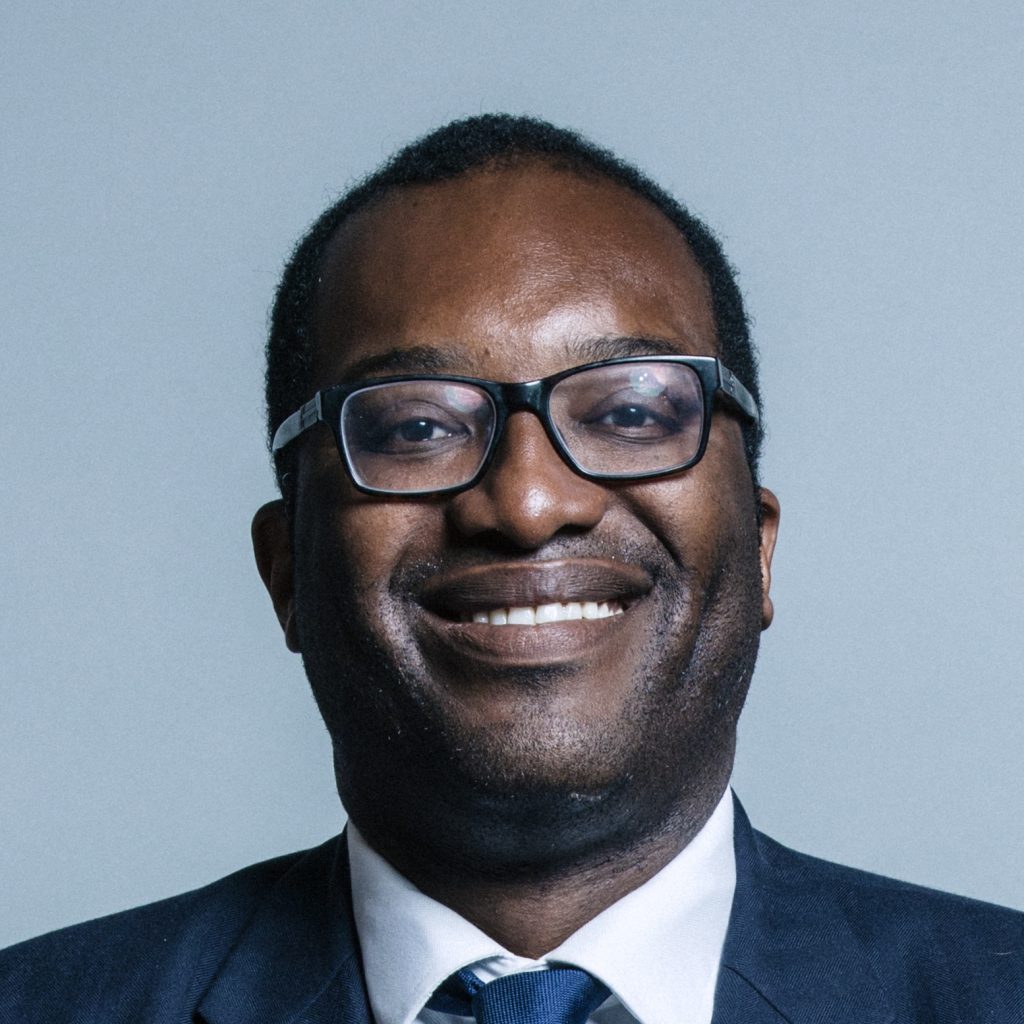
Credit: Kwasi Kwarteng/UK Parliament.
Similar to his peers, the chancellor of the exchequer, Kwasi Kwarteng, has voted in favour of the Conservative majority on almost all issues. Kwarteng is due to unveil the government’s energy package on 23 September, which will outline the plan to tackle the cost-of-living crisis. However, Kwarteng has a track record of voting to reduce support for welfare benefits and has voted against raising them in line with prices, at the very least.
As train staff and Royal Mail workers continue plans to strike over pay, Kwarteng has a history of voting in ways that are detrimental to people’s socio-economic rights. The minister has consistently voted against slowing the rise in rail fares and consistently voted for the privatisation of Royal Mail. In fact, Kwarteng has consistently voted against a publicly owned railway system. Kwarteng has consistently voted against greater public control of transport services and in favour of privatisation.
Kwarteng, like his colleagues, has generally voted against laws to promote equality and human rights and to reduce state funding of local government. Most concerning, however, is his views on restricting the third sector. Kwarteng has consistently voted for greater restrictions on campaigning by third parties, such as charities, during elections and almost always voted for restricting the scope of legal aid – which is often used to protect human rights.

